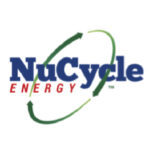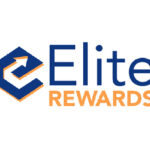Mark Sherwin, the President and CEO of Sage Capital Concepts, Inc., specializes in working with Business Owners and Entrepreneurs integrating Advanced Tax Reduction Strategies with Advanced Uncorrelated Absolute Return Investment Strategies. He helps to Preserve, Protect and Pass on your hard-earned wealth. Mark also teaches continuing education on these advanced strategies to CPAs and attorneys practicing in Florida.
He explains that a large portion of a business owner’s future Lifestyle & Legacy Plan is probably dependent on selling the business at some future point to a business partner, family member or a third party. A business transition plan may include a buy-sell agreement with your co-owners that outline the terms of the sale.
The agreement will also spell out the details with some of the key areas being:
- The triggering events of the buy-sell such as death, disability, retirement, termination, divorce, and bankruptcy
- Who will purchase the interest such as the business, co-owners, key people or a third party
- The value of the business
- How the price will be paid
If you are going to sell your business interest at retirement you may be concerned about:
- Minimizing tax consequences.
- Improving the creditworthiness of the business.
- Leaving the business in good financial shape for the future owners.
- Being sure the purchaser will have the funds to complete the buy-out.
If your plan is for family members to take over the business, you may also be considering:
- How long do I stay on for a successful transition?
- Are they familiar enough with the business and ready to take over management?
- Am I able to gift all or a portion of the business to my children?
- What about my children who are not involved in the business?
Having a formal buy-sell is important, but just as important is making sure the money is there to complete the buy-sell. There are a number of ways to consider fund the buy-sell agreement.
Cash on Hand
Unfortunately, cash surplus is not always available when it is needed most and depending on your business, the amount may be substantial.
Sinking Fund
Think of this as a savings account. With this method, money is set aside for the eventual purchase of the business. It’s a little more certain than hoping to have cash on hand, but what if there was an emergency or even an opportunity and it was decided to use the funds before the money you need for the buyout has accumulated?
Borrowed Funds or Installment Note
Another option is to borrow funds from a bank or from the selling owner to purchase the business. However, the death, disability or retirement of a co-owner may affect the ability to obtain credit from a third party. Borrowing the money from the seller through an installment note is often used as a back-up plan, but it raises many concerns.
- Can the family afford to receive the buyout funds over the installment period?
- What happens if the business cannot sustain itself with this new debt?
- Will the family receive the whole buyout price?
Life insurance
For many business owners, insurance can be the most cost-effective option. The life insurance death benefit can provide the needed cash to complete a purchase at death and the cost to purchase the insurance may only be pennies on a dollar. For lifetime buyouts in the event of divorce, disability or retirement, the policy cash value can be accessed through loans and withdrawals to supplement funds needed to complete the purchase.
IRS Circular 230 Notice: We are required to advise you no person or entity may use any tax advice in this communication or any attachment to (i) avoid any penalty under federal tax law or (ii) promote, market or recommend any purchase, investment or other action.
The information and opinions contained in this document are for background purposes only and do not purport to be full or complete, and is subject to change. No representation, warranty, or undertaking, express or implied, is given as to the accuracy or completeness of the information or opinions contained in this document, and no liability is accepted as to the accuracy or completeness of any such information or opinion. Sage does not provide tax, legal, or accounting advice. In considering this material, you should discuss your individual circumstances with a tax, legal and/or accounting professional before making any decision. Sage Capital Advisors, Inc. is licensed to offer life insurance in the state of Florida
Any investment advisory services offered through Delta Capital Management, LLC, an SEC registered investment advisor. Sage Capital Concepts, Inc. is independent of Delta Capital Management, LLC. Please be advised that the representative of Sage Capital Concepts, Inc. holds Series 65 License in FL. For residents of other states in which registration is not held, proper licenses and registrations must be obtained by representatives before proceeding further.








